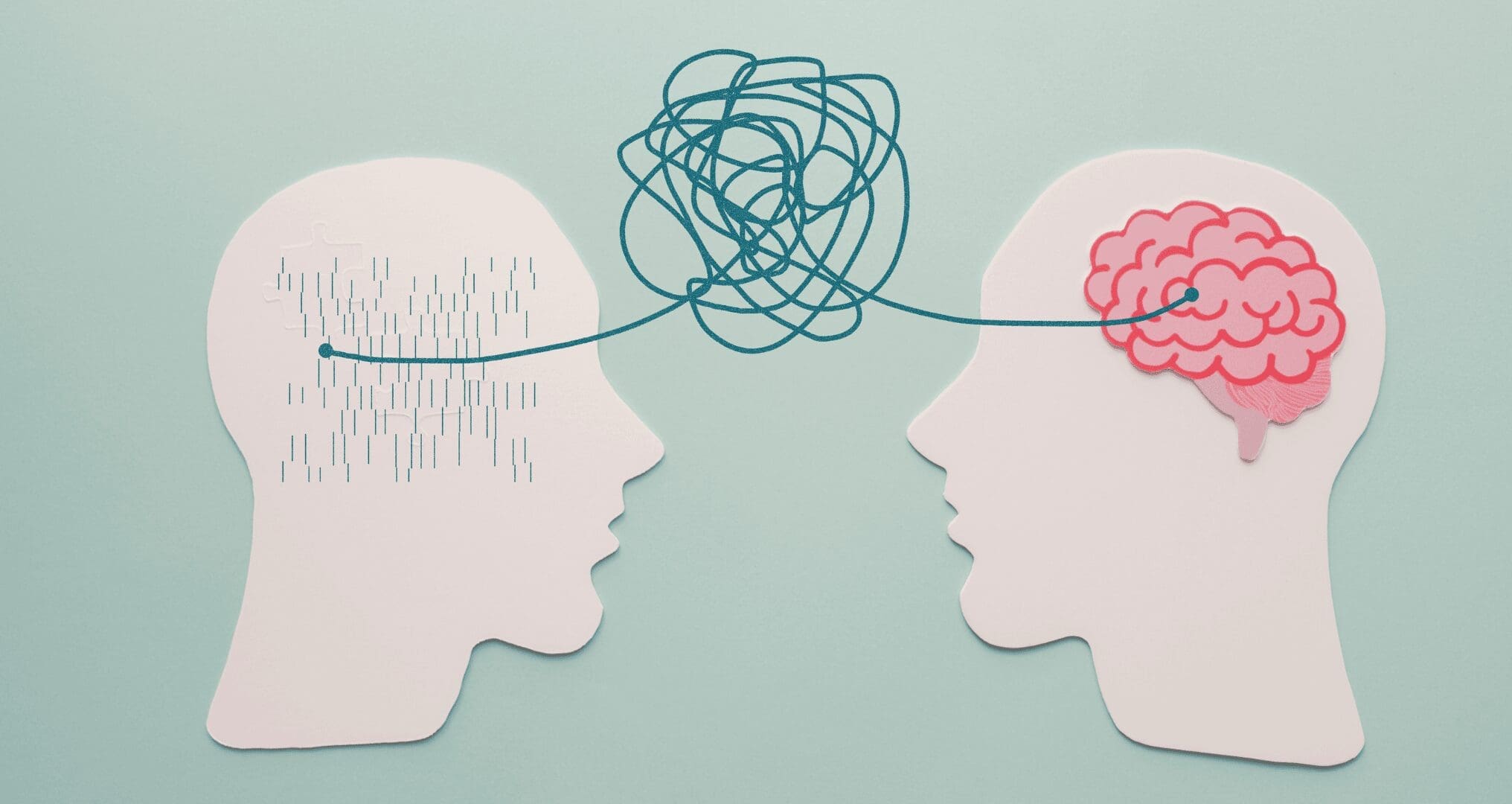
7 Proven Ways You Can Stop Scary Overthinking & Decrease Anxiety
Read Time:
7.1 minutes
Share This:
Your mind can torture you.
It can whizz around at dizzying speeds jumping from one thought to the next before you’ve even had time to worry about the first one. Sometimes, the thoughts that pop into your head are random and maybe a little humorous. At other times, they can get your heart racing and send you straight into a panic. Most of the time, they’re negative and not very supportive of you.
“I haven’t gotten a reply to my text. They must be mad at me. What did I do now?”
“I forgot to give Charlie his meds. If he has a bad day at school, it’ll totally be my fault.”
“I need to fix a healthy dinner tonight because we ordered pizza last night. I’m such a slacker.”
“I’ll probably get fired if I don’t finish this project on time.”
You know how it goes. I’m sure you have your own version of this unfriendly chatter that routinely plays in your head.
Your Brain Has a Negativity Bias
To keep you safe and alive, your brain is naturally negative and cautious. Its number one job is to look out for and predict all the possible dangers you could encounter as you go about your day. Back when you might have been some predator’s dinner, this was an evolutionary advantage that helped humans survive lethal threats. And even though you don’t find yourself in mortal danger often these days, this anxious negativity bias still exists in your brain.
Sometimes, the fear response is warranted and is still a good thing — in situations where you need to react quickly. However, most of the time, your brain sounds the fear alarm too often over neutral incidents. When you know what’s happening in your brain, you can turn down its fear alarm and calm your mind and body. Here’s what you need to know.
When You’re Overthinking, Your Amygdala Is In Control
When you find yourself tense with anxiety and your mind churning with fearful thoughts, your amygdala is running the show. Your amygdala is a small almond-shaped mass located deep within the temporal lobe of your brain. It’s part of your primitive brain’s limbic system, which is primarily responsible for processing memory, decision-making, motivation, and emotional reactions — most significantly, those related to survival.
The amygdala acts as your brain’s threat radar detector. When the amygdala sounds the alarm, your body responds with an almost instantaneous sequence of hormonal and physiological changes preparing you to fight or flee. When this happens, your amygdala hijacks your brain, and most of your physical and mental resources get allocated to making sure you can survive a lethal threat. Your brain and body are on high alert, and your intelligent, thinking brain shuts down.
Take Control of Your Brain
You can’t control the random thoughts that pop into your head. They’re generated by your subconscious brain, and its top priority, as we’ve said, is always protecting you. So, your instinctual thoughts are going to be predominantly fearful and negative.
That’s normal.
However, what you can control is how you respond to those thoughts: whether you believe, react to, and act upon them. That’s where you have the power to decrease your anxiety. Instead of going wherever your mind takes you, you can consciously control your mind and guide it in a direction that supports, encourages, and calms you. Here are some ways to start doing that.

Catch Yourself Thinking
The first step to stop overthinking and decrease anxiety is to realize when you’re doing it. If you don’t even know you’re overthinking, how can you change it? Often, you may be aware of the physical signs, like a racing heart, headache, nausea, or an anxious buzz, before you are aware of what your mind is doing. Start paying attention to what you’re feeling and thinking. Try to catch yourself in the act of overthinking.
Observe Your Thoughts
Many people don’t realize that they’re not the conscious originators of their thoughts. You are the conscious observer of your thoughts. This distinction is important. So, try to take a step back and distance yourself from and observe your thoughts — rather than just assume they are facts and true. Many times, they’re not. Remember your brain is going to naturally err on the side of caution and safety every time. So, it’s biased. And the thoughts it comes up with may not be in your best interest or even relevant. Realizing that you’re not your thoughts and distancing yourself from and observing them can ease anxiety.
Control What You Can Control (and realize what you can’t)
Your brain craves certainty and control, and uncertainty contributes to an anxious brain. Let’s face it, in the real world, you often don’t have control over much, but as long as your brain feels like it has some control, it rests easier. So, figure out what you can control (if anything) in a situation that’s causing you anxiety and take charge of it.
Even if you can’t control any part of the circumstances, the one thing you can always control is you — your mind and behavior. Do that. Controlling and guiding your mind and behavior will go a long way toward diffusing anxiety and helping you navigate any situation successfully.
Get Creative
When you catch yourself overthinking and letting your amygdala run the show, it can be challenging to switch gears because your rational brain is shut down. Doing something creative or just listening to music can distract you and re-engage your mind. Music and any other creative activity can tap into and stimulate other parts of your brain and get you out of the negative thought loop.
Ground Yourself
When you’re caught up in overthinking or anxiety, it can help to “ground” yourself in your body in your physical environment. This simply means to pay attention to what’s happening in your current surroundings. Doing this will switch the part of your brain that’s active and in control. For example:
- Notice five things you see in your immediate environment.
- Pick out three individual sounds you hear.
- Feel your feet in your shoes and the pressure of them standing on the ground.

Go Out in Nature
When you feel anxiety mounting, it can be helpful to take a break and connect with nature. Getting outside in natural light, taking deep breaths, seeing and hearing the sounds of nature can calm your brain and cause it to release calming neurochemicals. Studies show that being in nature or even viewing scenes of nature can reduce fear and stress and increase pleasant feelings.
Lower Your Expectations
Life rarely goes the way you plan or think it should. The gap between your expectations and reality is filled with pain and struggle. When we let go of what we think “should be,” let life unfold, and work with what reality presents us, life gets easier. When you lower your expectations, it’s more likely that you will be pleasantly surprised by the way things turn out. One study on happiness found that having money and success didn’t increase happiness as much as lowering expectations did.
Anxiety Begins in the Brain and Can End There
In addition to the strategies above, neurofeedback brain training has proven extremely effective at calming a racing mind and easing anxiety. Neurofeedback teaches a person to control their brain activity to guide it toward healthier functioning. The answer to easing and reversing anxiety is to turn down your brain’s fear response and to turn up your brain’s relaxation response. Your brain can learn to increase its production of calming brain waves, decrease the brain waves correlating with anxiety, and turn down amygdala sensitivity permanently.
Neurofeedback is a form of biofeedback therapy that successfully improves many conditions, including depression, autism, ADD and ADHD, brain injuries, OCD, stroke recovery, PTSD, addictions, seizure disorders, migraines, chronic pain, IBS and leaky gut, and more. By fine-tuning the brain’s performance, neurofeedback can also improve focus and concentration. For example, neurofeedback training could improve a person’s performance at school, golf or other sports, or at work.
Peace and calm are possible.
At Grey Matters, we are passionate about helping people live their best lives. Send us a message or give us a call today at (317) 215-7208 to talk about how we can help you.



